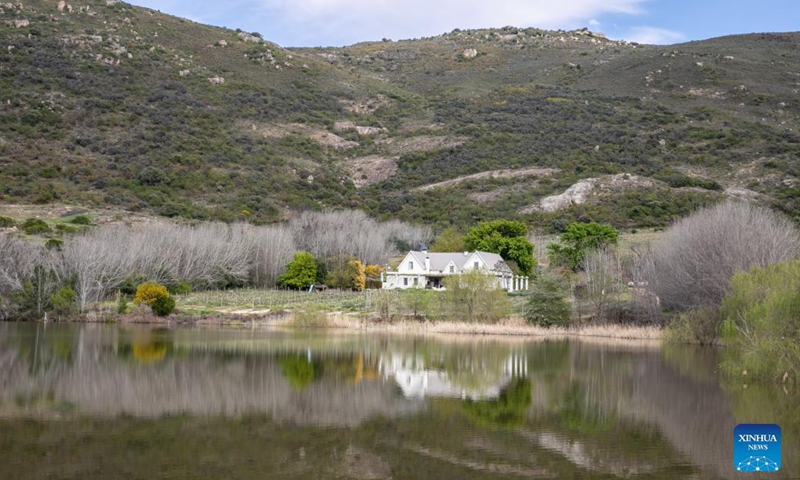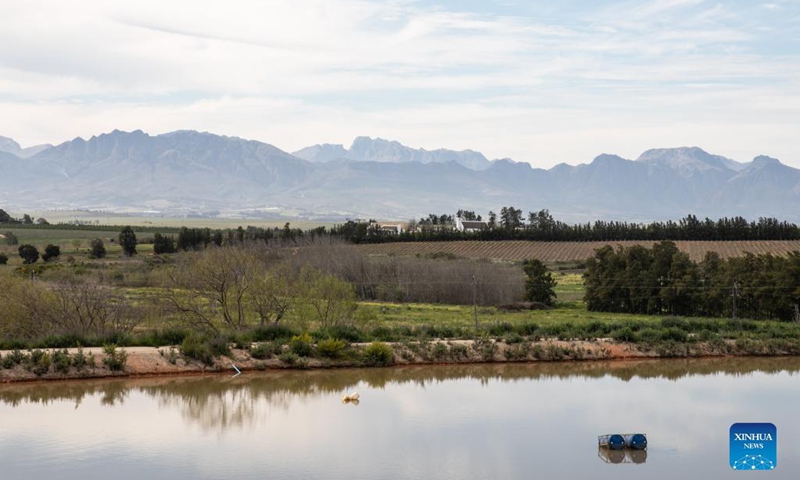
Photo taken on Sept. 21, 2021 shows a view of a wine farm in Paarl, South Africa. World Wildlife Fund (WWF) South Africa announced that 50 wine farms in the country have been recognized as WWF Conservation Champions for their regenerative farming practices.Photo:Xinhua

Photo taken on Sept. 21, 2021 shows a view of a wine farm in Paarl, South Africa. World Wildlife Fund (WWF) South Africa announced that 50 wine farms in the country have been recognized as WWF Conservation Champions for their regenerative farming practices.Photo:Xinhua
World Wildlife Fund (WWF) South Africa announced that 50 wine farms in the country have been recognized as WWF Conservation Champions for their regenerative farming practices.
Most of South African wines are produced in the Cape Winelands, southwestern South Africa, which overlaps with two major global biodiversity hotspots, the Cape Floral Kingdom and the Succulent Karoo, where many rare and endangered species grow.
These farms, covering 43,000 hectares of land including 23,000 hectares of a pristine part of the Cape Floral Kingdom, have adopted practices such as conserving natural systems and biodiversity on their land, implementing responsible production practices and spearheading innovations in water and energy efficiency, WWF South Africa said in a statement issued Thursday.
According to the WWF, many of these farms have set aside land for conservation, rehabilitated vast sections of the Cape Floral Kingdom through projects for clearing of invasive alien plants, reduced their water usage and implemented energy-efficiency solutions.
Many of them have also diversified their wine farm offering through sustainability initiatives to include nature-based activities like walking, hiking and mountain biking trails to attract more visitors and contribute to ecotourism, said the environmental conservation organization.
In 2020, South Africa was the eighth biggest wine production country, producing 4 percent of wines in the world.
The Conservation Champion program supports wine farms in their conservation endeavors through advisory support and assistance with setting tangible targets and prioritizing actions to address their most pressing environmental risks.
